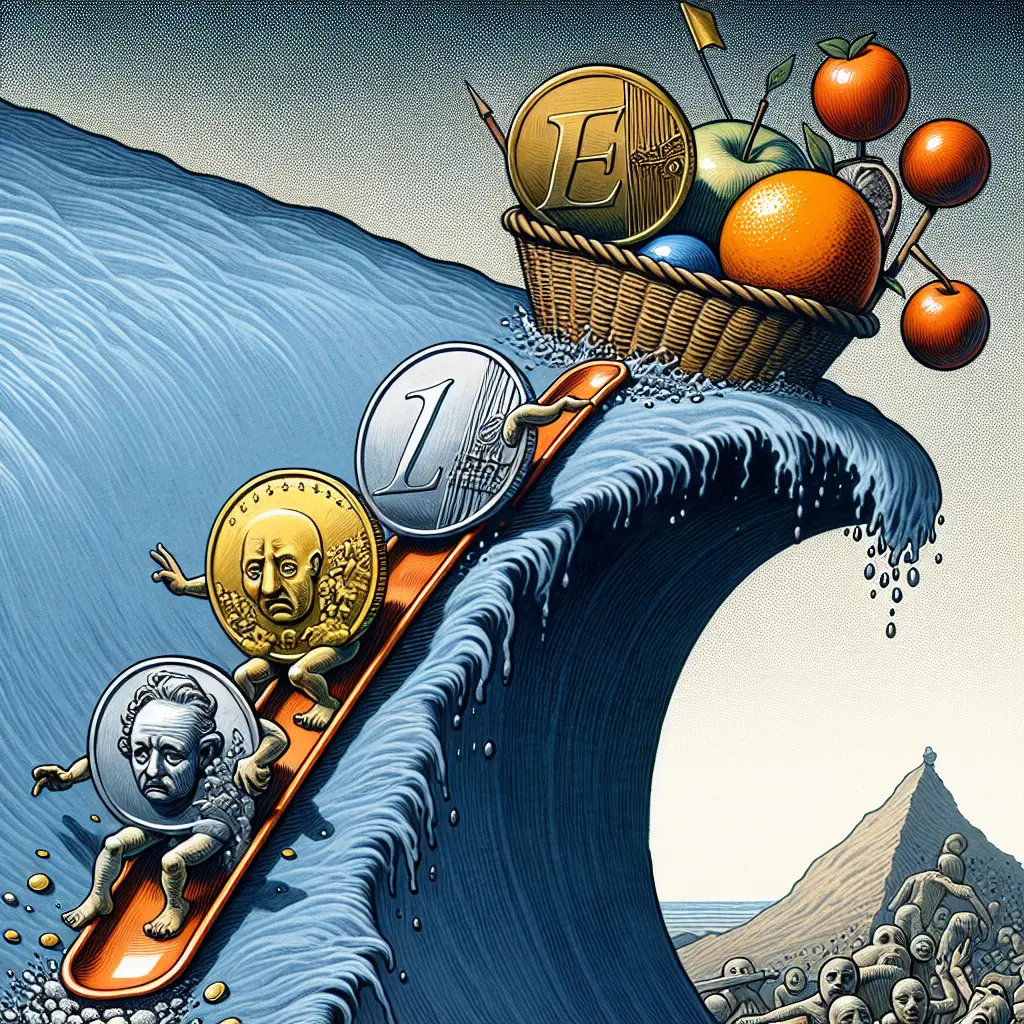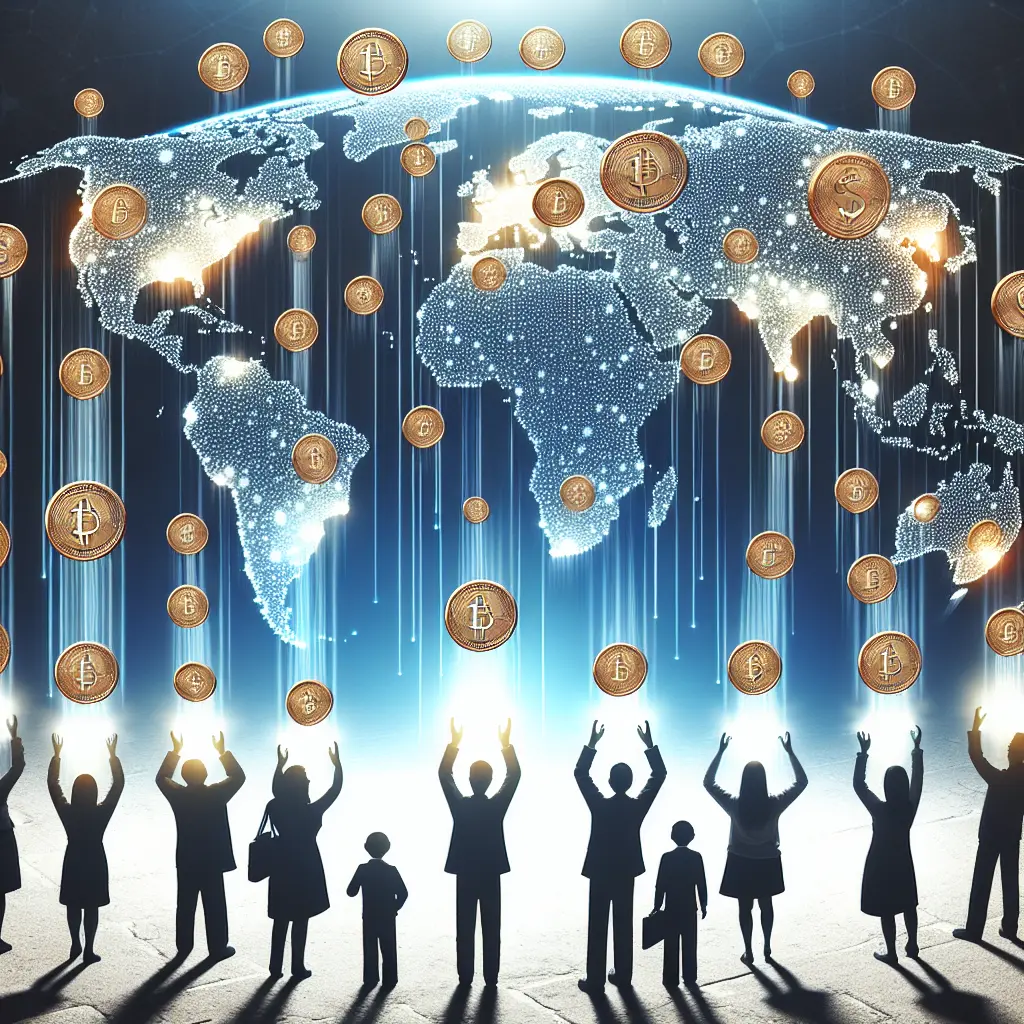In a rapidly evolving digital age, XRP emerges as a pivotal player in advancing financial inclusion, particularly in underserved regions worldwide. As a digital currency, XRP offers innovative solutions that bridge the gap between traditional banking systems and the unbanked populations, fostering economic empowerment and access to finance. In many emerging markets, financial accessibility remains a significant barrier, but XRP's blockchain technology is reshaping this landscape. By facilitating seamless cross-border payments and remittances, XRP ensures that financial resources can flow more freely to those who need them most.
XRP's role in promoting decentralized finance opens new avenues for economic growth and fintech innovation. Its cutting-edge payment solutions are revolutionizing banking solutions, enabling microfinance solutions that provide critical support to small businesses and individuals. By lowering transaction costs and increasing transaction speed, XRP is making financial services more accessible, especially in areas where traditional banking infrastructures are lacking.
Furthermore, XRP's global impact extends beyond just monetary transactions. It plays a crucial role in enhancing financial literacy and offering digital banking solutions tailored for low-income individuals, thus contributing to poverty reduction. The integration of XRP in these contexts not only empowers individuals economically but also catalyzes broader societal changes, driving inclusive development and sustainable growth.
As we delve deeper into XRP's multifaceted contributions, we uncover how this digital currency is reshaping the financial ecosystems of emerging markets, providing a beacon of hope for millions striving for financial stability.
In the ever-evolving landscape of digital finance, XRP stands out as a transformative force, particularly in advancing financial inclusion in underserved regions. With its robust blockchain technology and innovative solutions, XRP is breaking down barriers to financial accessibility and empowering unbanked populations around the world.
XRP's Role in Promoting Financial Inclusion in Underserved Regions
Financial accessibility remains a significant obstacle in many emerging markets. Traditional banking systems often fail to reach remote or economically disadvantaged areas, leaving millions without access to essential financial services. This lack of access stymies economic empowerment and perpetuates cycles of poverty. However, XRP is actively working to change this narrative by providing effective, scalable solutions.
XRP's blockchain technology is at the forefront of addressing these challenges. By offering a decentralized platform, XRP facilitates seamless cross-border payments and remittances, which are crucial for individuals who rely on international transfers. The technology ensures that financial resources can flow more freely to underserved regions, reducing the cost and time associated with traditional banking transfers. According to a recent report by Ripple, XRP has significantly reduced transaction fees, making it an attractive option for remittances.
In Africa, where banking infrastructure is often limited, XRP has made significant strides. For instance, a partnership between Ripple and local fintech firms has enabled faster and cheaper cross-border transactions. This has had a profound impact on small businesses that rely on affordable financial services to thrive. The World Bank highlights how XRP's solutions have improved financial inclusion by connecting rural areas with the global financial system.
XRP also plays a crucial role in supporting microfinance initiatives. By lowering transaction costs and increasing speed, XRP provides a viable platform for micro-lending, which is essential for small entrepreneurs. These microfinance solutions offer critical support to businesses and individuals who might otherwise be excluded from the financial system. As noted by Forbes, XRP has enabled numerous microfinance projects in Southeast Asia, helping entrepreneurs access capital efficiently.
Driving Economic Growth Through Fintech Innovation
XRP's impact on economic growth cannot be understated. Its integration into financial ecosystems fosters fintech innovation, which is vital for the sustainable development of emerging markets. By promoting decentralized finance (DeFi), XRP enables a broader range of financial products and services that cater to diverse needs. This innovation not only stimulates economic growth but also paves the way for new business models that prioritize inclusivity.
Beyond its technical solutions, XRP contributes to enhancing financial literacy. Educational programs supported by Ripple focus on teaching individuals about digital currencies and financial management. Such initiatives are critical for ensuring that populations can fully benefit from the opportunities presented by digital finance. A recent initiative in Latin America has shown promising results, with increased adoption of digital banking solutions tailored for low-income individuals.
XRP's comprehensive approach to financial inclusion plays a significant role in poverty reduction. By providing reliable and affordable financial services, XRP empowers individuals economically, enabling them to improve their living standards. The United Nations' 2023 Sustainable Development Report recognizes XRP as a key player in reducing poverty through enhanced financial inclusion.
The journey of XRP in reshaping financial ecosystems in emerging markets is far from over. As the digital currency continues to evolve, its potential to drive further economic empowerment and access to finance is immense. By constantly innovating and adapting to the needs of underserved regions, XRP is poised to remain a beacon of hope for millions striving for financial stability.
By integrating blockchain technology with practical financial solutions, XRP is not just transforming transactions but also lives across the globe. Its commitment to fostering inclusive development ensures that the benefits of digital finance reach every corner of the world, ultimately contributing to a more equitable and prosperous future for all.










Leave a Comment